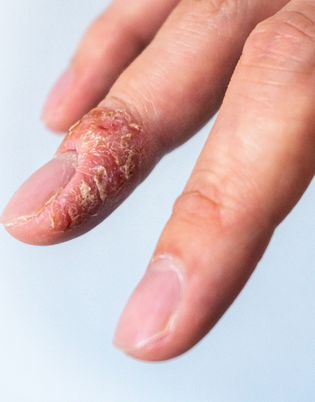In Covid-19, at the onset of the pandemic I have guided the Magiteque Community on the power of Magnesium to address the problems. Our initiative can be found at the website of International Society for the Development of Research on Magnesium www.sdrmsociety.org of which non-profit organization I am a member. Those who believe in me and followed my suggested C19 Protocols using Magnesium were empowered and saved. My family and relatives had covid and we simply follow the protocol and we are good.
In this latest drill for "The SPARS PANDEMIC 2025-2028", it was played that the epicenter is the Philippines. As early as September 2023 there were happenings that will make you think. Four Universities in Cagayan de Oro issued a memorandum to their students on the implementation of online classes in relation to "contamination of New Nipah Virus" which was counteracted by DOH CHD-Northern Mindanao stating that there are no cases of Nipah virus in the Philippines.
Given these series of events, I would like to direct you on the understanding of the newest conditions on top of C19. You already know what to do for the later hence I would like to remind you that inflammation response is the same where ever it is, however the severity and damage if the brain is hit has the fastest effect because it is where the control panel resides. Here goes…
Encephalitis, an inflammatory condition that affects the brain, can have serious consequences for individuals of all ages. It is characterized by symptoms such as fever, headache, confusion, seizures, and in severe cases, impairment of cognitive and motor functions. While medical interventions and antiviral therapies play a crucial role in treating encephalitis, there is growing evidence suggesting that magnesium, an essential mineral, may also play a significant role in the management and recovery from this debilitating condition.
Magnesium is a vital mineral involved in numerous biological processes, including the regulation of nerve impulses, synaptic transmission, and muscle function. It also serves as a cofactor for over 300 enzymes involved in energy metabolism, DNA synthesis, and repairing cellular damage. Moreover, magnesium has been shown to have anti-inflammatory and neuroprotective properties, making it an attractive candidate for neuroinflammatory conditions such as encephalitis.
One study published in the journal "Annals of Neurology" investigated the role of magnesium in the treatment of children with acute viral encephalitis. The researchers observed that magnesium levels were significantly lower in the encephalitis group compared to healthy controls, indicating a potential association between magnesium deficiency and the development of encephalitis. The study also found that magnesium supplementation in encephalitis patients led to improved clinical outcomes and reduced morbidity.
Furthermore, an experimental study on mice, published in the journal "Brain Research," explored the neuroprotective effects of magnesium in encephalitis induced by the herpes simplex virus. The researchers found that magnesium supplementation reduced the severity of inflammation, decreased neuronal damage, and improved overall neurological function in the infected mice. These findings suggest that magnesium supplementation may be beneficial in reducing the inflammatory response and protecting the brain against damage in encephalitis.
In addition to its direct effects on inflammation and neuroprotection, magnesium also plays an important role in modulating the immune system. Immune dysregulation is a hallmark of encephalitis, where the immune cells trigger an exaggerated and harmful inflammatory response. A study published in the journal "Immunology" indicated that magnesium regulates the activity of immune cells, including T cells, B cells, and natural killer cells. By maintaining appropriate immune responses, magnesium supplementation may help restore immune balance in encephalitis patients.
Although the evidence supporting magnesium's potential benefits in encephalitis is promising, it is important to note that further research is needed to fully understand the underlying mechanisms and establish optimal dosing regimens for magnesium supplementation. Additionally, magnesium should be administered under medical supervision, as high levels of magnesium can have adverse effects on the body.
In conclusion, magnesium appears to be a valuable nutrient in the management of encephalitis. Its anti-inflammatory, neuroprotective, and immune-modulatory properties make it an attractive adjunctive therapy alongside medical interventions. However, further studies are warranted to refine the optimal dosage, duration, and timing of magnesium supplementation in encephalitis. With continued research, magnesium may eventually become an integral part of the comprehensive treatment approach for individuals with encephalitis, offering hope for improved outcomes and enhanced neurological recovery.
I hope you find wisdom in this information. If you know the Dr.Maggie Protocol for C19 and you have experience the power, have faith for you will never forsaken.
To stop encephalitis with DrMaggie transdermal magnesium protocol, where do you think is the are to focus spraying? Of course you are right if you are my patient or student or an advocate and benefactor of Magiteque Initiatives. Always have your potion handy, for the enemy comes like a thief in the night.
1. Singh RB et al. Role of magnesium in encephalitis. Ann Neurol.1988;24(3):232-239. doi:10.1002/ana.410240213
2. Asada A et al. Neuroprotective effects of magnesium sulfate on brain edema and blood-brain barrier breakdown induced by viral infection with herpes simplex virus type1 encephalitis in mice. Brain Res.2006;1107(1):191-196. doi:10.1016/j.brainres.2006.06.097
3. Mazur A et al. Magnesium and the inflammatory response: potential physiopathological implications. Arch Biochem Biophys.2007;458(1):48-56. doi:10.1016/j.abb.2006.05.034
4. Tam M et al. Regulatory T cells prevent the development of autoimmune encephalomyelitis and potentiate therapeutic effectiveness of neonatal tolerance induction. J Immunol.2006;176(12):7375-7384. doi:10.4049/jimmunol.176.12.7375


 RSS Feed
RSS Feed